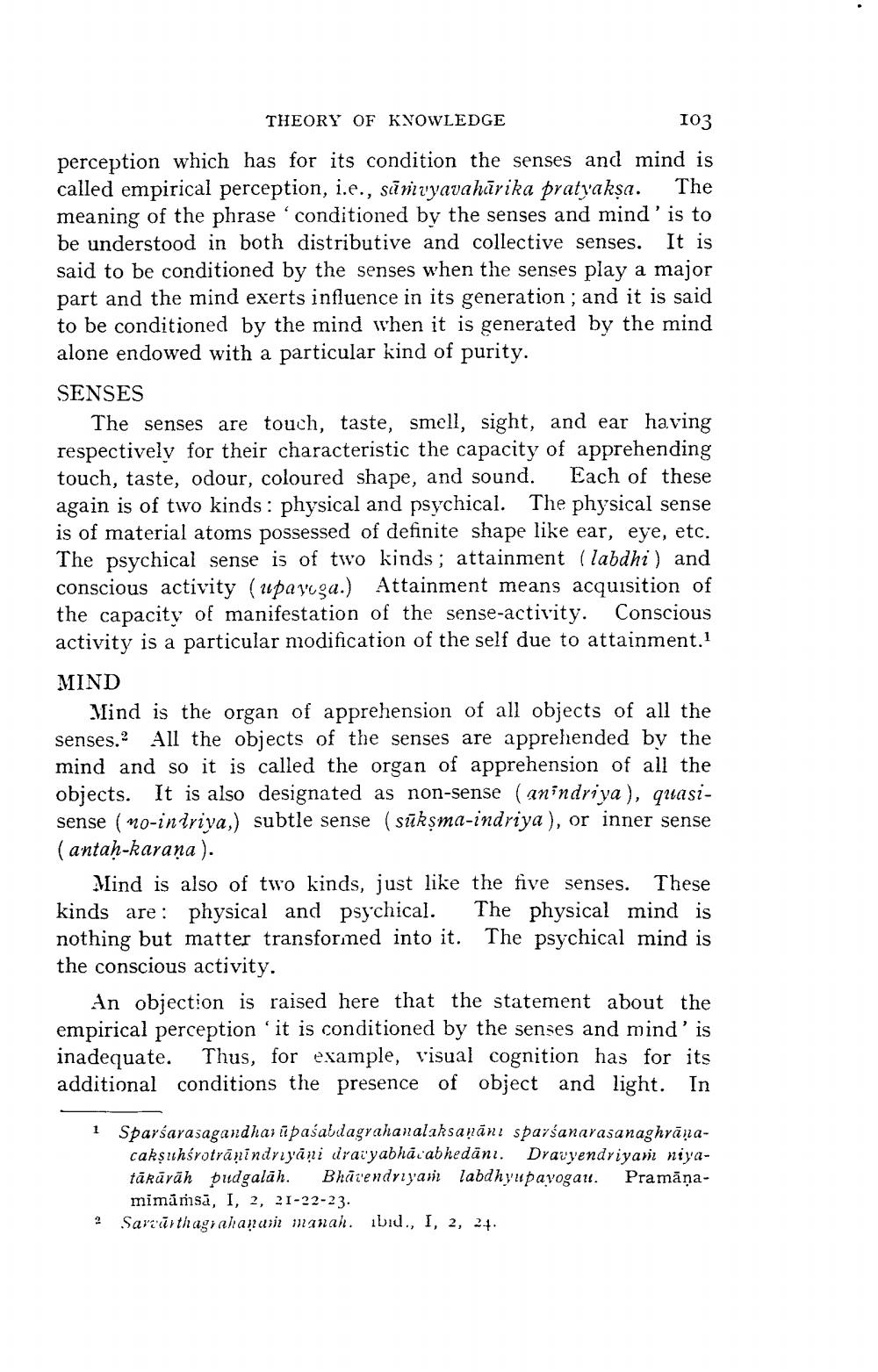________________
THEORY OF KNOWLEDGE
103
perception which has for its condition the senses and mind is called empirical perception, i.e., sānivyavahārika pratyaksa. The meaning of the phrase "conditioned by the senses and mind' is to be understood in both distributive and collective senses. It is said to be conditioned by the senses when the senses play a major part and the mind exerts influence in its generation, and it is said to be conditioned by the mind when it is generated by the mind alone endowed with a particular kind of purity. SENSES
The senses are touch, taste, smell, sight, and ear having respectively for their characteristic the capacity of apprehending touch, taste, odour, coloured shape, and sound. Each of these again is of two kinds : physical and psychical. The physical sense is of material atoms possessed of definite shape like ear, eye, etc. The psychical sense is of two kinds; attainment (labdhi) and conscious activity (upayoga.) Attainment means acquisition of the capacity of manifestation of the sense-activity. Conscious activity is a particular modification of the self due to attainment.1 MIND
Mind is the organ of apprehension of all objects of all the senses. All the objects of the senses are apprehended by the mind and so it is called the organ of apprehension of all the objects. It is also designated as non-sense (anindriya), quasisense (no-indriva,) subtle sense (sūksma-indriya ), or inner sense (antah-karaṇa).
Mind is also of two kinds, just like the five senses. These kinds are: physical and psychical. The physical mind is nothing but matter transformed into it. The psychical mind is the conscious activity.
An objection is raised here that the statement about the empirical perception it is conditioned by the senses and mind' is inadequate. Thus, for example, visual cognition has for its additional conditions the presence of object and light. In
1 Sparśarasagandhar pasabdagrahanalaksanāni sparśanarasanaghrāna
caksuhśrotrāṇindnyāni uraiyabhārabhedani. Dravyendriyaniı niyatārāräh pudgalāh. Bhūtendriyani labdhyupavogau. Pramāņa
mimamsā, I, 2, 21-22-23. 2 Sarruthagrahapuri manah. ibid., I, 2, 24.




